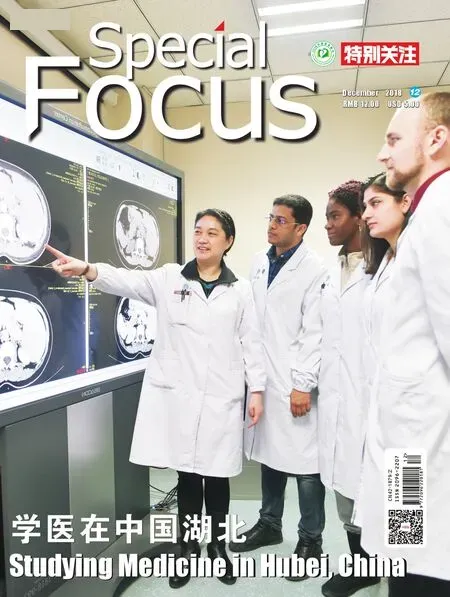Lin Yutang on the Art of Speaking
By Hu Changbai
When a man reaches a certain age, being funny is the highest compliment he can receive.
Lin Yutang was reckoned as one of the truly amusing men of his time. “Life is just a life. Do and cherish what you have at the moment.” This famous line was originated from the old gentleman Lin, who received his master's degree at Harvard University and a doctorate at Leipzig University.
Scholars like Lin are more likely to dwell on all living beings and the world, focusing on routines and uncertainty,as well as common people and their subtleties. For instance, Lin observed how ordinary people spoke in their daily life, and wrote a book entitled The Art of Speaking. Based on his Chinese and foreign experiences, Lin highlighted some important tips for speaking.
Manners of Speaking
The first principle is to be sincere in speaking. Confucius stressed that speaking must be supremely honest to thrill the listeners. Aristotle's rhetoric of persuasion involved three elements: credibility, logic, and emotion—and credibility ranks first. The second is to be refined and polite. A drop of honey can catch more flies than a gallon of venom can kill. The third is that we should respect and treat others with equality. It's no good to have a long face, or to grin cheekily in speaking. The former is not lovely while the latter is not respectable.
Strategies of Speaking
The key point in speaking involves the word “Yes” being given priority. That is, to say“Yes” more, and to praise and approve of others more. It is more reasonable to embrace the common ground first and then to express differences,contradictions, conflicts, and debates. In brief, it is more important to seek common grounds before discussing differences. In order to verify it, Lin offered the following five suggestions:
First, everyone has dignity, so we should learn to keep other's dignity and face. Second, most quarrelsome guys are fools. Third,criticism and rebuke can only invite resistance. Fourth, your seemingly cleverness will arouse others' stubbornness—triggering indifference, frustration, and even self-abandonment. Lastly, “yes”is favored not to please and flatter someone, but to live by reality and truth.
With the booming of communication sciences, reality and truth in today's world co-exist—explored, discovered, and shared by both the speaker and the listener. Reality and truth will be silted between the speaker's own mouth and the listener's own ears.

Why do people prefer listening to “Yes” or a word of praise?Among all the possible answers,one answer is desirability—that is,man after all, are humble animals,longing for certainty, security,and approval, resorting to others'warmth and sincerity. Modern citizens have a particular yearning feeling to be desired. The reasons are as follows:
The recognition of human identity no longer arises from the self-pride of the marriage of divinity and humanity, but from the confirmation, recognition,and identity on the part of others.For example, if you work day and night and you are exhausted,both physically and mentally, and then if a superior pats you on the shoulder and says, “Man, you've done a great job,” you can go ahead cheerfully and sweat over your work for another few days.
Minding the Response from Listeners
The listener is entitled to speak and it is better to let them speak first. Listening to others is the highest compliment. There is no more beautiful manner than listening to others in the world.It involves your respect and deep concern for them in a more accurate and in-depth manner.As soon as they open their mouth,their intentional secret will reveal itself.
Praising is also regarded as a useful means to getting a positive response, and presumably is the most effective form of communication in the world.Of course, a gentleman should also compliment the beauty of others in a sincere and flexible way, and let others savor the words of praise—even a long time later, their faces will still be beaming from genuine praise, as if in a spring breeze or in autumn stillness.
Skills Necessary for Speaking
Lin Yutang detailed several tools and acute methods of speaking,among which three main points dominate:
Humor! Lin once said, “A positive attitude comes from humor and laughter, while irony and jokes are hidden behind the solemn forms.” As mentioned above, being funny is a trait that never goes out of fashion.
Quips! There must always be one or more outstanding phrases in one's speech. There should be punch lines in long conversations or public speeches, a quip or two that could be remembered,repeated, and whispered in a noisy square occupied by millions of people.
Repetition! It's best to assume that the listener is always absentminded, and never behave as the speaker imagines. Napoleon once said that repetition is the only important principle in rhetoric.Don't detest repetition for being monotonous; monotony is a powerful tool.
Furthermore, hints or cues are equally vital in producing a speech. Men court women mainly by repeated confession while women woo men by bodily hints.Do you remember Jia Rui in the book A Dream of Red Mansions?Wang Xifeng seduced him in a mirror, which ultimately took away his spirit and life.
Requirements for Voice and Manners
Voice is essential in delivering a speech. The pitch and tone the speaker utters can dwarf the listeners. Manners are important,too. When a speaker speaks,their postures, gestures, and expressions—such as sitting,standing, brow-raising, and eyeblinking—should be visualized in person, and formal speeches require more practice and rehearsal beforehand.
(From China Youth, Issue 16,2018. Translation: Qing Run)
林语堂谈说话的艺术
文/胡长白

人到一定年纪,有趣乃最高的评价。
林语堂算得上有趣的风流之一。“人生不过如此,且行且珍惜”,这句著名的鸡汤语便出自老林,他是哈佛大学的硕士、莱比锡大学的博士。
林语堂这样的文人,更易平视众生和世事,将目光投向日常与无常、人及其细微的命运。举例说,老林观察了常人说话的方式,便写了一部《说话的艺术》。林语堂基于中外经验的比照,道出了说话的讲究:
说话的态度
一要诚言,孔子讲修辞立其诚,至诚足以动人;亚里士多德讲说服之修辞有三要素——信誉、逻辑和情感,可信排在第一位。二要温雅,一滴蜜所能捉得的苍蝇,比一加仑毒汁杀死的苍蝇还要多。三要尊重,平等心以待,拉长面孔不好,嬉皮笑脸也不行,前者不可爱,后者不可敬。
说话的策略
根本要则在于“是”字优先,即多说“是”,多赞美、赞同对方,先立下认同的根基,再明示差异、矛盾、冲突和辩难。质言之便是先求同,再论异。林语堂为申明这一主张,提出了五个证据:
谁都为尊严而战,别开口就摧毁对方的尊严和面子;劈头盖脸的争论者多是傻子;批评和训斥往往招致反抗;你的高明只会徒增对方的倔强,或招致漠然、沮丧乃至自暴自弃;“是”字优先并非取悦阿谀,而是不愿伤及真相和真理。
以今日传播学的积累,真相和真理既是实存的,亦是言者和听者一道探寻、发现和共享之物。对方一旦旁观或离场,真相和真理便淤在言者自家的唇齿之间了。
人何以这般爱听“是”或赞同的话?在所有可能的答案中,我偏爱这样的说法:人,说到底是一种卑微的存在,渴望确定性、安全感和赞同,渴望他人温暖恳切的目光。现代人在此一方面尤甚,理由在兹:
远离神性之后,人的认同不再来自神性与人性合一的自足,而是他人的确认、承认和体认。譬如,你没日没夜地做工作业,分明身心委顿至竭,此时若有尊长领袖拍一下你的肩膀,道一声“伙计,你真不错”,你又可欢喜向前,再熬他三五日。

顾及听者的反馈
让听者有说话的机会,最好让对方先开口。倾听是我们对他人至高的恭维,世上再无比倾听更美的姿势。对方先开口的好处,除了将你的尊重传递给他,还在于更准确、深入地洞察他的关切。他一开口,
掩蔽的靶子便显露出来了。
赞美在获得积极反馈方面同样有用。或许赞美是世界上投入产出比最划算的交际方案了。当然,君子见人之美,亦应赞之有道,要真切、灵动,让人很久之后想起你的赞美,脸上仍有春风秋水。
演讲必备的技巧
林语堂琐细列举了演讲的工具和乖巧的方法,要者有三:
幽默。老林说:“幽默在欢笑的背后隐藏着对事物的严肃态度,而讽刺却在严肃的形式背后隐藏着玩笑”。如前所言,有趣才是真风流。
金句。总要有一句或数句漂亮话。长篇的谈话或演讲更须妙用金句,要有那么一两句话像在百万人的广场上,人皆闻之如切近的耳语。
重复。听者总是无情,永远不如言者想象那般倾心专注。拿破仑说,重复乃修辞学上唯一重要的原则。你别嫌它单调,单调才有力。
除了重复,暗示也很重要。男追女主要靠重复,女追男则须暗示。你还记得《红楼梦》中的贾瑞吗?凤姐一面暗示的镜子,索了他的精魄和性命。
声容的要求
声音对于说话是重要的。高亢者凄厉,调门一高,人就矮下去了。举止也是重要的,说话时的起座安立、举手投足、扬眉瞬目皆应自观,正式演讲更须练习。
(摘自《中国青年》2018年第16期)

